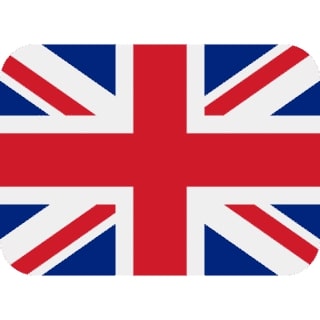Dear Parents,
This week was a historic week for the state of Israel. On Tuesday, millions of Israeli citizens went out to vote. Here at Aardvark Tel-Aviv, our students took advantage of the election day in different ways. Some walked around the different voting stations to see what it’s like and some enjoyed the fact that public transportation was free and used it to travel the country.
The day after the elections we had talks with our students, it was great to hear how they all experienced this election day in their internships or just out in the streets. Many of our students mentioned the great amount of tension they felt from Israelis over the results of the election and then afterwards, when the results came in, the sadness or happiness of the voters.
Today, after a tense week, we are adjusting to the new/old reality where Benjamin Netanyahu will be Israel’s prime minister for the 5th time (4th in a row).
It is definitely a historic period for our students to be in Israel and we, as a team, tried our best to maximize this election in order for them to learn and understand better the country that they are currently living in.
On Sunday afternoon, our students went to Ramat Gan to pay their respects to the family of Zachary (Zechariah) Baumel. Sgt. First Class Zachary (Zechariah) Baumel was 22 when he left Yeshivat Har Etzion to head to war. On that fateful day in 1982, while fighting in Lebanon, he vanished along with Sergeant First Class Yehuda Katz and Sergeant First Class Tzvi Feldman whose remains are still missing. For 37 years, Israelis have been praying for his return to Israel. And now, thanks to an operation run by Israeli intelligence services, his body has been brought back to Israel for a proper Jewish burial.
Even though the situation was at first a bit awkward, we rather quickly received a warm welcome from the family and we heard many interesting and fascinating stories from Zachary’s brother and his daughter. It was without a doubt a very significant and emotional experience for us all to be able to take part in this national memorial, which will forever be a major milestone in Israeli society.
Gila Cherny said, “It was a really nice experience, for strangers to let us into their own home and allow us to support them. They shared stories about him and let us ask questions, it was a really touching experience, and being able to show our support was amazing.”
On Monday, we had an evening activity called Cafe Ivrit. The students met in a coffee shop in the neighborhood for a nice and relaxing evening in which they could only converse in Hebrew (challenging, right? That’s the point!) The students ordered hot drinks and each one received a menu with some Hebrew vocabulary on it. The Madrichim walked between the tables and helped the students to start the conversation. It was a great opportunity to practice some simple Hebrew words including slang and all kinds of funny terms. The activity was a great completion to the Ulpan classes and the students had a wonderful night together.
Barri Miller said, “Cafe Ivrit was a really cool experience and opportunity to practice the Hebrew that we have all been learning throughout the semester/year. We played games like ‘never have I ever’ in Hebrew, and even ordered our drinks in Hebrew from the workers. For me, it was a good experience because being in Israel, the language is a very important aspect of living here.”
Tuesday in Israel was the day that all Israelis went to the polls to elect members of the 21st Knesset. In the Israeli parliamentary democracy, the President of Israel will, after the votes are tallied, decide whom to invite to form the next government based on his judgement as to which of the leading parties has the best chance of doing so. Every four years, just like in the United States, there are parliamentary elections…but unlike the in US there is no term cap meaning a Prime Minister can be elected many times in a row. There are approximately 41 different parties running in this year’s elections, which is a ton when compared to a system like the United States.
Prime Minister Benjamin Netanyahu won Tuesday’s election and while his Likud Party and Benny Gantz’s Blue and White Party won 35 seats each, Netanyahu is the one who will be able to form a governing coalition.
Tia Geri said, “Election Day was a lot of fun. Especially compared to America, because in Israel people get the day off and the day feels like one big party. Everyone is on the beach or just walking around town. I accompanied two friends to vote and it was really interesting to see how different the voting process is in Israel as compared to America. Plus, everyone is talking about politics and just walking around we overheard snippets of conversations about dozens of different issues. Everyone is so much more comfortable talking about politics and we found ourselves debating with cab drivers, waiters, and other people we didn’t know but just fell into conversation with. Overall the day was really fun and definitely an interesting experience – it was almost good and fun enough to make up for how sad the next day was.”
On Wednesday evening, we had the privilege to watch a movie about the Israeli Prime Minister, Benjamin Netanyahu, who was reelected on the same day. His biography is full of countless media appearances that helped him fortify his position. With the help of archival materials from his performances over the years, King Bibi reviews his rise to power: from the days when he starred as an expert on terror on American television in the 1980s, through his live confession of the hot tape affair, and until he gained full control of the social networks, The Israeli. From one studio to another, Bibi has become one of the great hopes of Israeli politics for a controversial leader whom many in Israel see as a savior, and others – a politician who will not hesitate to cling to power. Besides showing us Bibi’s life, it was an opportunity for us to understand better the Israeli political landscape, main events in Israel’s history and the relationship between the country and the USA. While the movie was played nationwide festivals in Israel, and across the world, we were the only group that was able to watch the movie on the same day as the elections results and to have a discussion with the director about it.
Noah Weil said, “Last night we all came together to watch “King Bibi,” a documentary focused on Bibi Netanyahu, and to speak with the director behind the film. In my opinion, I think the film did a very good job of remaining neutral on politics, while still being critical of Bibi. Most of us didn’t know an Israel before Bibi was in power and I think that it is very important to understand both his rise to power and the way he has acted while PM, especially in regard to the recent election. I think coming together to watch the film gave us a much better picture of Israeli politics and gave us fuel to think about the future.”
This week on Selah, we took the train to Kfar Chabad, a delightful little village in the center of the country for Lubavitch Hassidim. The village numbers about one thousand families. We were given a guided tour around the main building – a replica of the famous 770 building where the Rebbe once lived in Crown Heights. We heard about the history and development of this branch of Chassidut and had the opportunity to ask questions about the life of Rabbi Menachem Mendel Schneerson – arguably one of the most famous and influential Jews of the last hundred years. We then had an opportunity to prepare and bake Matzot before seeing Israel’s largest Matza factory. We saw tens of workers put in eighteen-minute shifts (the time it takes for the dough to rise without becoming Chametz) in order to produce thousands of kilos of Matzot. We ended our tour with a walk around the groves where they grow Etrog fruit for Succot. It was so wonderful to connect to two of the three major Jewish holidays (Pesach, Succot and Shavuot – the Shalosh Regalim) here in Israel. We also wrapped up our Learning Space before the Passover break with a final opportunity to learn, grow and discover with our outstanding team of Selah educators.
Internship In The Spot Light: Jilian Elman
“I had never worked with kids before I started volunteering at Tzimon Daycare, but If I had to choose a word to describe the relationships I have developed with the kids there as of now, I would call them ‘symbiotic’. All of the children I work with are seeking refuge in Israel with their parents who work all day long to pay for a living situation but are too busy to provide adequate care and company for them. It has been a privilege to give them the attention they deserve every day and teach them the life lessons my parents taught me. Over the past four months, I have watched both the kids and myself grow beyond my expectations especially as they are such a vulnerable population and under my supervision. Leaving them is going to be the hardest part of this semester, especially since they’ve referred to me as “mommy” since day one, but at least I’ll have confidence in knowing I was a good one for an 18-year-old.”
Next week we will be visiting the city of Chevron as well as having an alternative Peach Seder and starting Spring Break!
The Madrich on call for this weekend is Avia.
Until next week,
Sincerely,
Eyal


























